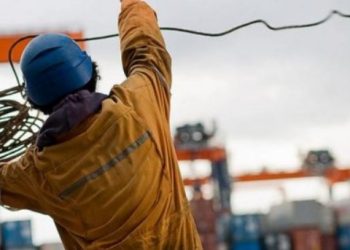Source: Tanker Operator
 The International Chamber of Shipping (ICS) has expressed concern about a US proposal to remove the present limitation of liability system for vessels.This is one of the various proposals put forward to amend OPA 90 in the wake of the Deepwater Horizon oil pollution incident in the Gulf of Mexico in April 2010.
The International Chamber of Shipping (ICS) has expressed concern about a US proposal to remove the present limitation of liability system for vessels.This is one of the various proposals put forward to amend OPA 90 in the wake of the Deepwater Horizon oil pollution incident in the Gulf of Mexico in April 2010.
According to this proposal, the limitation of liability system would be replaced by a system which would be similar to that being applied to the oil offshore/extraction industry.
The ICS said that the OPA 90 regime has functioned well for two decades and the limits have been reviewed and updated as recently as 2006. They were also increased further in 2009.
These limits have proved to be adequate and workable. Every incident of pollution from a vessel has fallen within the limits of liability of OPA 90 and the Oil Spill Liability Trust Fund (OSLTF).
More particularly, in the few cases where vessel limits have been exceeded, additional resources have come from oil industry funding via the OSLTF, which ensures sharing of responsibility for the costs of compensation between the shipping and oil industries, the ICS said.
There are significant factual differences between the risk assessment of a drilling operation and of maritime transportation and OPA 90 very rightly differentiates between the two sectors when determining the respective limits of liability.
ICS said that changes to the liability and insurance related aspects of OPA 90 for vessels are unwarranted.
The vessel liability provisions in OPA 90 strike a careful balance (taking into account both vessel type and size) to provide appropriate levels of responsibility for the broad range of vessels to which OPA 90 applies. The levels of liability and financial security for pollution are reasonable and insurable.
Unlimited or disproportionate liability for vessels would undermine the operation of OPA 90, because the system relies on the immediate availability of insurance resources to support clean up and response operations and compensate third party claimants with minimal delay or litigation.
This would also be inconsistent with congresss aim of having a comprehensive and vibrant transportation system that enjoys an effective, predictable liability and response regime.
Unlimited liability is uninsurable and the providers of the Certificates of Financial Responsibility (COFR) would not be able to provide certificates for such liability. This would lead to an inability on the part of the majority of vessel operators trading to the US to continue to do so, ICS warned.
In seeking to align the OPA 90 provisions on financial consequences of an oil spill from a vessel with that from an offshore oil facility, the reason for the original point of distinction is disregarded.
In ICSs view, such a proposal is unwarranted and, if effected, would disrupt the mechanism by which vessels fund their liability under the statute, and would make it impossible for shipowners to trade to the US, the chamber said.




























































